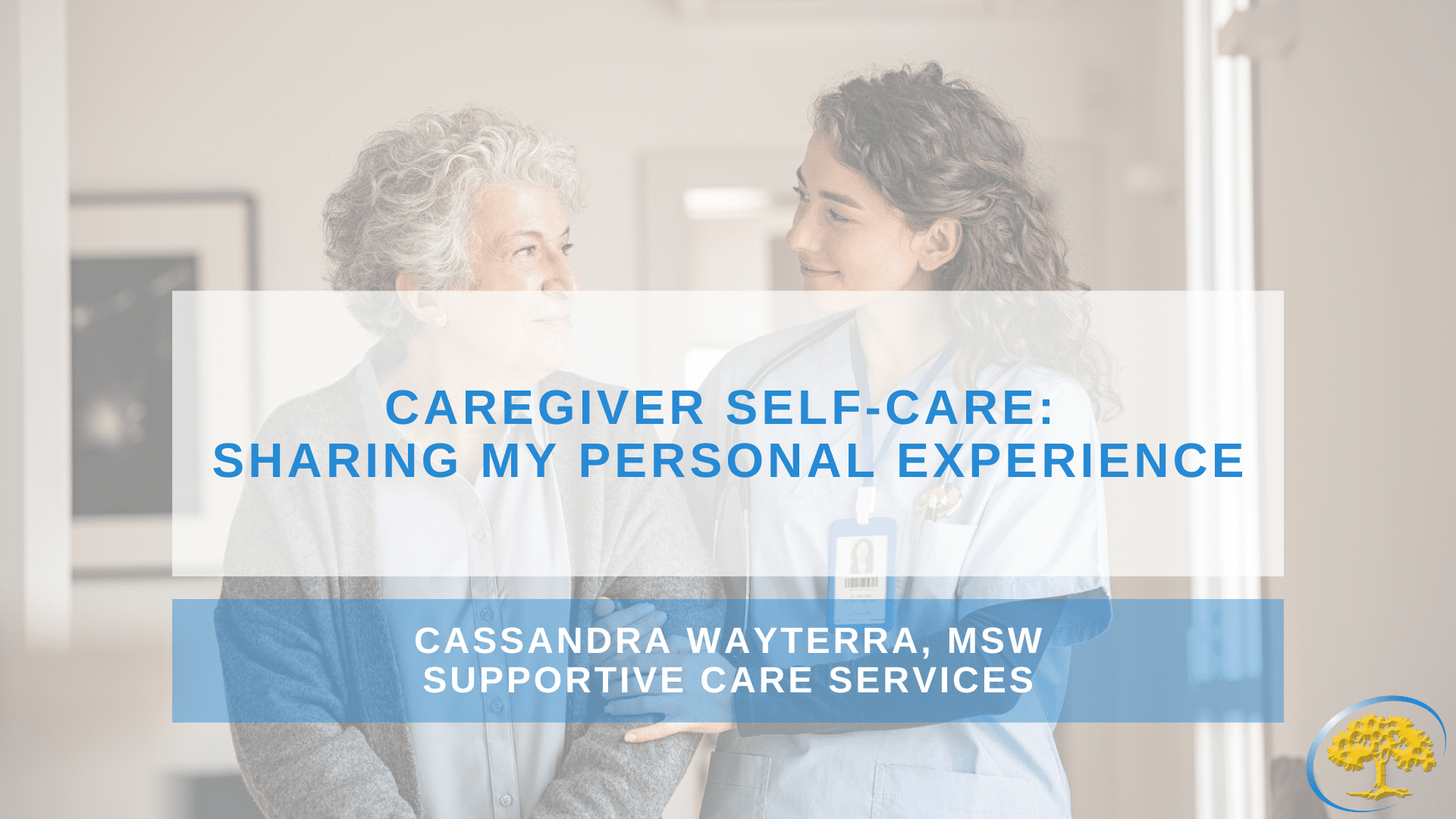
Posted 1 year ago
Caregiver Self-Care: Sharing My Personal Experience
Caregiver – such a loaded word and seems never ending, right?! This was a constant for myself and my family several years ago after having to care for my grandmother the last five years of her life. She suffered from NASH (Nonalcoholic steatohepatitis), which is a condition in which the liver builds up excessive fat deposits. This required the last several years of her life to move in with my parents, be watched or assisted daily, and three times weekly dialysis treatments. It became all life-consuming, even so much that we as a family did not take time out for ourselves. During this time, my mom had her own battle with breast cancer. Even this was a struggle to deal with amid taking care of my grandmother. So why am I telling you all this information? It’s to bring awareness and ask you, if you are taking care of yourself while also caring for you loved one? Seems easier said than done, I know, but how can we maintain our lives while also caring for our loved ones?
In doing some research for this article, I found an efficient workbook from the Leukemia and Lymphoma Society (LLS) website (www.LLS.org/caregiverworkbook). Here they included ways you can create a self-care plan that helps you care for yourself to be the best version for your family member. Let’s create a brief one together!
First, it has you do a physical self-care plan – If we are not physically taking care of ourselves, we run the risk of depleting our energy even more in caretaking. What does this look like for you? Remembering to eat healthy foods throughout the day? Drink our water…I know I’d be lost without my Stanley cup. Are we sleeping well? All these factors play a role in caring for ourselves. Evaluate how you feel physically and determine if you are at your current goal, if not – how do we get there?
Second, we need to evaluate our mental and emotional self-care plan. Watching our loved ones suffer or change in our original perception of them is a huge transition. It was difficult to see my grandmother need around the clock assistance or monitoring. I had known her to be a fully independent woman and be fearless throughout my life; so, to watch this person now change before my eyes was difficult emotionally to comprehend. Here is also where I had to re-evaluate my state of mind. One of the major things I did for myself was seek a therapist, one who specifically dealt with caregiving of a loved one with a major illness. My therapist had previously worked in a hospice and cancer setting and saw numerous caregivers; she gave great insight into these changes and helped me normalize my feelings about this process. Journaling was another added addition. I made time for my thoughts and allowed this time to be my time. I wrote any frustrations, sadness, or any feeling that I was having on paper. It helped release those emotions and allowed for empathy to come through. This is a difficult step in our self-care plan but an important one! Finding things that allow for an emotional release is healthy. Believe it or not, crying is HEALTHY. According to an article from Harvard Health Publishing with Harvard Medical School, studies have shown that repressing our emotions produced a less robust immune system, increased cardiovascular disease as well as hypertension. It also stated that we increase our stress, anxiety, and depression. It also shared that crying allows for us to increase our closeness with others, as well as empathy (to read this article please go to: https://www.health.harvard.edu/blog/is-crying-good-for-you-2021030122020). So many benefits to crying with that added release. Cue the tears!
Our third thing on our self-care plan includes being able to delegate to others. I know…I just made you laugh. When being a caregiver, it’s all about control, but sometimes letting go and allowing others to assist can be a benefit for us. It’s helpful to identify people you trust and that can commit to assisting you. Evaluate what are simple things they can help with? Can they pick up a prescription? Can they watch your loved one for a couple hours while you go catch a movie or go to dinner with your significant other? It’s helpful to lean into our friends, family, and loved ones when we can.
Lastly, don’t forget to breathe! You are human and this can often be the most stressful time of your life. It was the hardest thing I had to do so far in my life, but it also taught me a lot on how I wanted to spend my future. Daily it was helpful to do a deep breathing exercise or a meditation. I was not one who believed it the effectiveness of these things at first but then allowing myself this space and time really showed me gratification later. If you’re not sure where to start, that’s okay! There are plenty of apps and guided meditations online. It even helps to close your eyes. Try to push that to-do list to the side as well – it’s a challenge for sure but you can do it! Remember, you’re doing the best you can with the information you have.
If you are a caregiver in need of support or resources, we are here for you! You can contact one of our Social Workers at Ironwood by calling 480-314-6660 or emailing them at socialwork@ironwoodcrc.com. We have support groups and are connected to other community resources that can help you be your best at this time.
